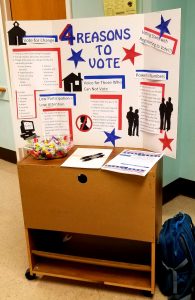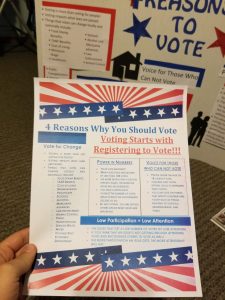Competency 5
Engage in Policy Practice
Practice Behaviors
- Identify social policy at the local, state and federal level that impacts well-being, service delivery and access to social services.
- Assess how social welfare and economic policies impact the delivery of and access to social services.
- Apply critical thinking to analyze, formulate, and advocate for policies that advance human rights and social, economic and environmental justice.
Engaging in policy practice as an ethical and professional social worker means that I will be intentional to look into policies, whether bills or laws, that affect my clients and populations of clients that I work with. I will strive to promote and advocate for social and economic justice with the use of my social work skills. In becoming an ethical social worker, it is my goal to engage in policy practice at the local, state, and federal level to promote social, economic, and environmental justice for the clients and client families that I work with. I will work to assess unintended consequences that policies might have on different populations and work to advocate for policies that advance human rights and social, economic, and environmental justice.
Evidence 1 (Class):
For my Social Welfare Issues and Policies class, I got the opportunity to look more in depth into some different policies and create a policy brief with some classmates. For this project, we selected a bill, conducted research, gathered statistics and information and created a policy brief. We then got to present our policy brief to staffers of different congress men and women in Washington DC on our class trip and advocate to get their support of the bill. Below is a picture of my group in Washington DC after we had presented. To access the policy brief that we created and presented, click here.
Evidence 2 (Field):
At my field placement agency, DFCS in Catoosa County, I was able to research some different bills and policies that have just been passed or are in the process of passing that affect DFCS. Some of the bills I researched were H.R.2480 – Stronger Child Abuse Prevention and Treatment Act, H.R.1585 – Violence Against Women Re authorization Act of 2019, H.R.1058 – Autism Collaboration, Accountability, Research, Education, and Support Act of 2019, and the Family First Preservation Services Act. I discussed these findings with my field instructor and we processed how these different bills and policies affect different populations that DFCS works with and affects how DFCS itself runs and operates. To read the full journal article click here.
Evidence 3 (Additional):
For my Social Welfare Institutions and Policies class, I got the opportunity to create an opportunity to get individuals engaged in voting and educating them on why their vote matters. My field placement agency, DFCS in Catoosa County, was gracious and allowed me to use their agency for my project. I created a poster board display as well as a flyer educating people on why they should vote, affirming that their vote does matter, and offering to help them register to vote if they were not already registered. Most people I talked with were already registered to vote, however I was able to help a couple people get registered and send in their voter registration form.

Skills Used:
This competency required me to use critical thinking skills, organizational skills, research skills, and communication skills.
Knowledge Used:
For knowledge about policies, policy briefs, and how to properly advocate for policies, I relied on instruction from my Social Welfare Institutions and Policies professor. I was also able to gain knowledge about policies from my field placement agency, DFCS in Catoosa County, through asking questions, reading in their policy manual, and researching online.
Values Present:
Through this competency, I used the value of social justice working to advocate for those who cannot advocate for themselves. I also used dignity and worth of a person through recognizing that each person’s vote is important and expressing this to the individuals that I talked with for my voter engagement project. Lastly, I demonstrated the value of competence by researching and being prepared to present to the staffers in Washington DC.
Cognitive Processes Used:
For this competency, I had the opportunity to locate different policies that affect clients and client families that I interact with, I had to apply knowledge that I researched to my advocacy and educational projects as well as discussing these policies and identified unintended consequences with my field instructor. I had to design and create a policy brief, flyer and poster and present these projects to different individuals.
Affective Processes Used:
For this competency, I was able to to search many different policies, bills and statistics, contribute when working in groups, and pursue different paths of advocacy to advance human rights and social, economic and environmental justice.
Theoretical Foundation:
Pluralistic Ignorance. This theory states that many people will adopt norms even if they do not agree with the norms. As social workers, it is our responsibility not to just adopt norms or policies if we do not agree with them or if we see that it is oppressing to certain individuals or populations. It is our duty to advocate for those who cannot advocate for themselves to advance human rights and social, economic and environmental justice.

